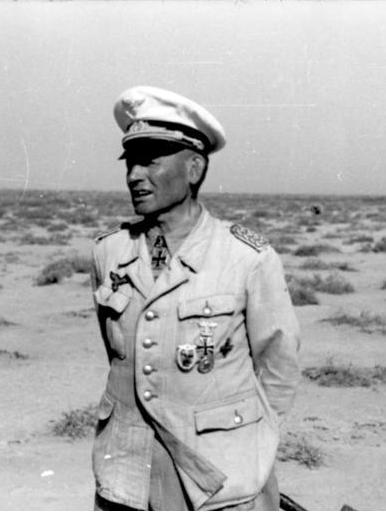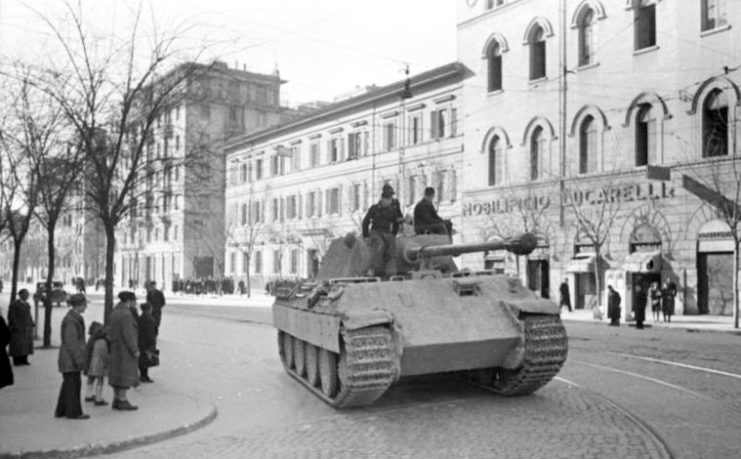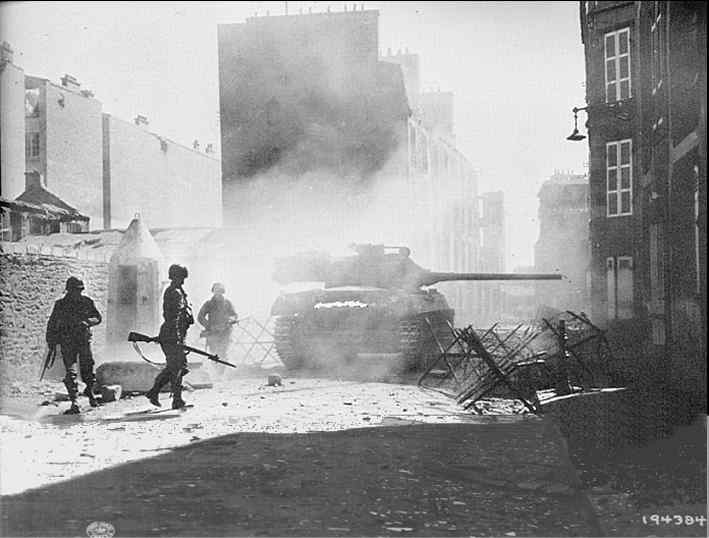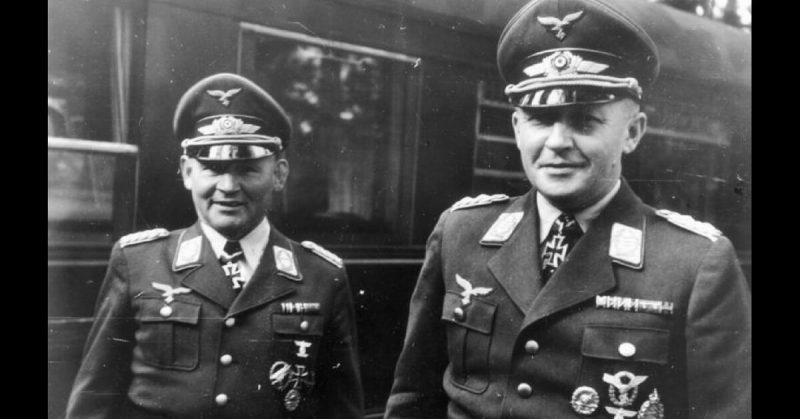In an American prison cell, a former German officer sat writing a letter to his captors. The war was over, but his concern for his men was not. After everything they had been through together, he was determined to see them treated well. The officer was Hermann Ramcke.
Early Years
Hermann Ramcke came from a family of North German farmers. Rather than stick with the family business, he joined the Navy. At the beginning of WWI, he became part of a new division of marines. Over the course of the war, he fought on both the eastern and western fronts, earning a reputation for courage, multiple medals, and several promotions.
At the end of the war, he remained under arms as part of Germany’s vastly reduced army. He rose steadily through the ranks. By 1940 he was a colonel in charge of a training area. Aged 51, he volunteered for the relatively new and quickly growing paratroop service.
Crete
As a paratrooper officer, Ramcke was promoted and given command of a battalion just in time for the invasion of Crete in May 1941. It was an airborne operation of unprecedented scale, in which the Germans aimed to seize the island through parachute and glider landings.
On the first day of the operation, May 20, they encountered problems around the airfield at Maleme. It was a critical position for the Germans to take. They needed to be able to land there safely to enable more troops and equipment to be brought in to reinforce the paratroopers. The German officer in command of the area had been killed, and there was little coordination on the ground.
Ramcke was chosen to fly in the next day and take control. He pulled together disparate paratroop units that had missed the chance to make their drops and parachuted in with them.

When he arrived, Maleme airfield had just been taken by the Germans. Ramcke quickly took control of German troops in the area, seizing critical ground around the airfield and clearing the runway ready for transport planes.
When the infantry commander arrived, Ramcke handed over control at Maleme. He then led paratroopers in action elsewhere on the island. He ordered the razing of villages in retaliation for the mutilation of German soldiers by local fighters.
By early June, Crete was in German hands.
Africa
In 1942, Major General Ramcke and the troops under his command were sent to take part in the war in North Africa. There, they were used as elite infantry rather than for airborne landings. Ramcke adopted the tactics of the Russian front, allowing his units to act independently over the wide open spaces.
Rommel expected to make a breakthrough against the British forces defending Egypt. The paratroopers were part of the force that was to punch through a gap and chase the broken British.
The breakthrough never came. Instead, Ramcke and his men were cut off by a British counter-attack. They had to retreat 120 kilometers through British-held desert; first on foot and then in a convoy of trucks, seized from their opponents.
Italy and the Balkans
Shortly after rejoining the Axis forces, Ramcke was moved to Germany to serve as a staff officer. While he was away from the front, the Allies drove the Germans and Italians out of Africa, then crossed the Mediterranean to invade Italy.
Under pressure, the Italian government deposed Mussolini and switched sides. Ramcke was part of the forces sent to deal with the outcome. Parts of his division captured Italian troops, rescued Mussolini, and seized the island of Elba. They also took part in invasions of the islands of Kos and Leros which took the pressure of German forces in the Balkans.

Russia and Retraining
Ramcke’s division was split up to fill holes in the German lines. Many of them were sent to Russia, where Ramcke went to oversee them. He visited his soldiers on the front lines and saw the harrowing conditions they faced. Cold, exhausted, and under constant pressure from the Soviets, theirs was a hard fight.
After suffering terrible losses, his troops were removed from the front line for rest and retraining. Ramcke, who had been spending time with the command staff in Berlin, was sent to join them.
He arrived at the training site at Cologne at the end of May 1944.
France
Within days, the war was transformed. Allied troops invaded Normandy on D-Day June 6. A week later, Ramcke and his men were flung into the increasingly desperate attempt to hold back their advance through France.
As they approached the combat zone, they found chaos on the roads. Ramcke commandeered civilian vehicles to get his men into combat.
In early August, his group faced an overwhelming force of American armor at Huelgoat. Attacked by partisans as they retreated through the woods, they became scattered, regrouped, and were hit heavily again.

Arriving at Brest with his two remaining battalions, Ramcke found himself the senior officer there. He took command of the German forces in a destructive battle that saw thousands of civilians in the town endangered.
Bit by bit, Ramcke was pushed back until he held only the fortress at Brest. On September 16, he was forced to move his headquarters to the La Crozon peninsula. The Allied commander repeatedly called on him to surrender, and he repeatedly refused.
On September 19, Ramcke finally surrendered. When asked by the American commander if there was anything he could do for him, Ramcke answered: “Make sure that my soldiers are treated well.”
PoW and Beyond
Ramcke spent seven years as a prisoner, both in the initial aftermath and following a conviction for war crimes. During that time, he contacted politicians campaigning for better treatment of his troops. He also corresponded with General Middleton, the man to whom he had surrendered.
He died in 1968.
